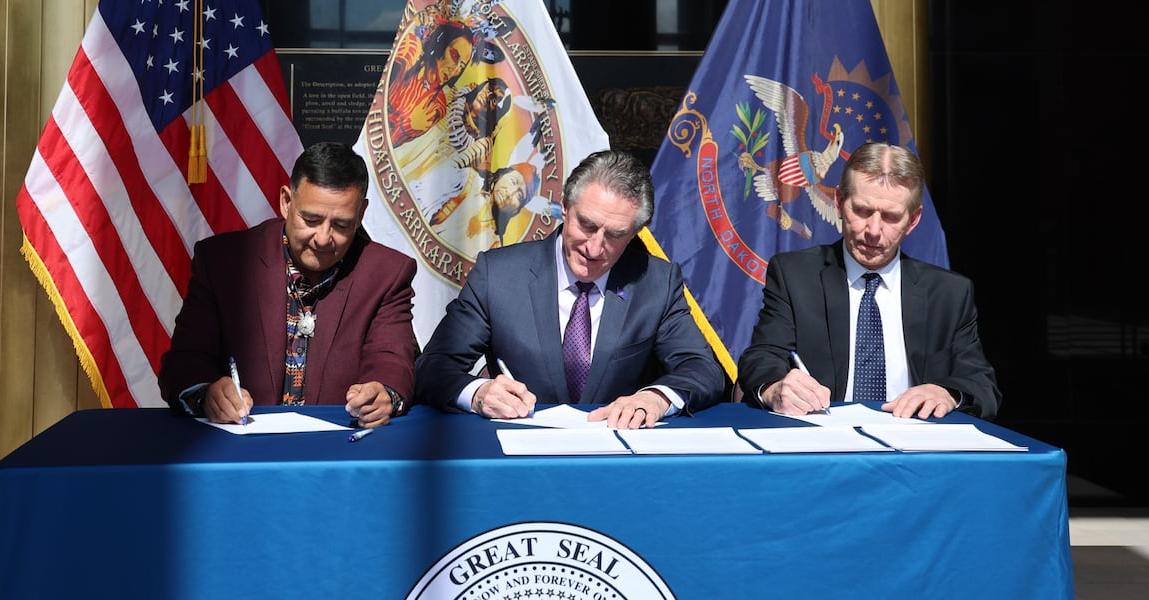
- Details
- By Levi Rickert
Breaking News. President-elect Donald Trump has decided to nominate North Dakota Gov. Doug Burgum to become the secretary of the Interior in his second administration. Burgm will replace outgoing Interior Secretary Deb Haaland (Laguna Pueblo), who was the first Native American to serve in a presidential cabinet in a secretarial role.
Among federal departments, the Interior Department is the most engaged with Indian Country, as it is home to the Bureau of Indian Affairs, Bureau of Indian Education, Office of Special Trustee, and Bureau of Land Management.
Burgum has served as North Dakota governor since 2016. The Governor’s Office worked with tribal nations, legislators, and the Office of the State Tax Commissioner for several years to negotiate an acceptable framework for revenue-sharing agreements and avoid a double taxation situation in which both the state and tribe could levy separate alcohol taxes on reservations.
Burgum's selection is seen a sign that the Trump administration will follow through on its plans to open federal land and waters to oil and gas drilling. Burgum comes from North Dakota where the oil industry is one of the largest economic generators in the state.
Trump made his announcement on his selection of Burgum at a gala on Thursday evening for the America First Policy Inistitute held at Mar-a-Lago.
"He's going to head the Department of Interior, and it's going to be fantastic," Trump said. "We're going to do things with energy and with land interior that is going to be incredible."
The formal announcement is expected to be made on Friday.
More Stories Like This
Native News Weekly (August 25, 2024): D.C. BriefsUS Presidents in Their Own Words Concerning American Indians
Native News Weekly (December 14, 2025): D.C. Briefs
Wounded Knee Massacre Site Protection Bill Passes Congress
Two Murdered on Colville Indian Reservation
Help us defend tribal sovereignty.
At Native News Online, our mission is rooted in telling the stories that strengthen sovereignty and uplift Indigenous voices — not just at year’s end, but every single day.
Because of your generosity last year, we were able to keep our reporters on the ground in tribal communities, at national gatherings and in the halls of Congress — covering the issues that matter most to Indian Country: sovereignty, culture, education, health and economic opportunity.
That support sustained us through a tough year in 2025. Now, as we look to the year ahead, we need your help right now to ensure warrior journalism remains strong — reporting that defends tribal sovereignty, amplifies Native truth, and holds power accountable.
 The stakes couldn't be higher. Your support keeps Native voices heard, Native stories told and Native sovereignty defended.
The stakes couldn't be higher. Your support keeps Native voices heard, Native stories told and Native sovereignty defended.
Stand with Warrior Journalism today.
Levi Rickert (Potawatomi), Editor & Publisher


